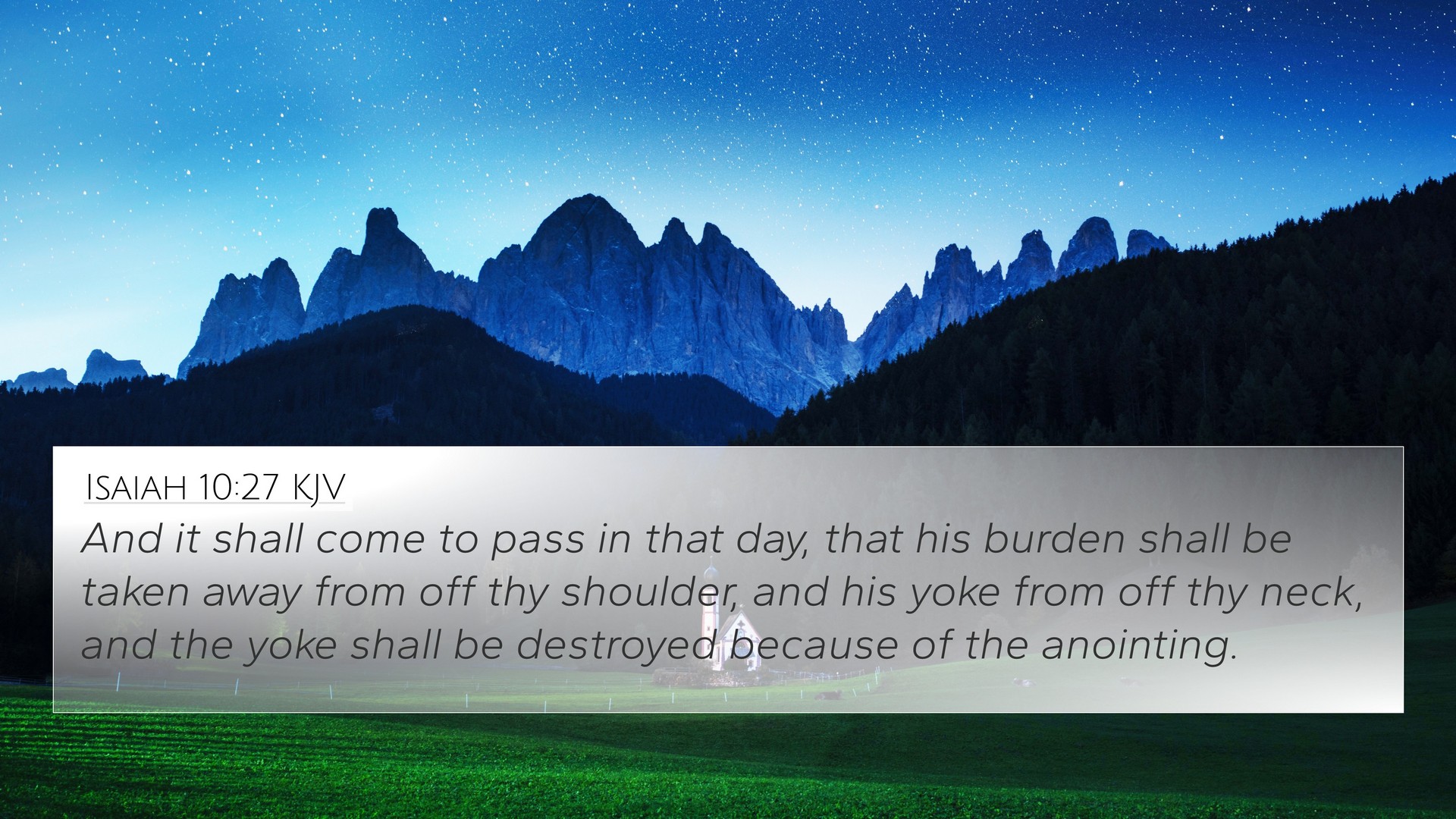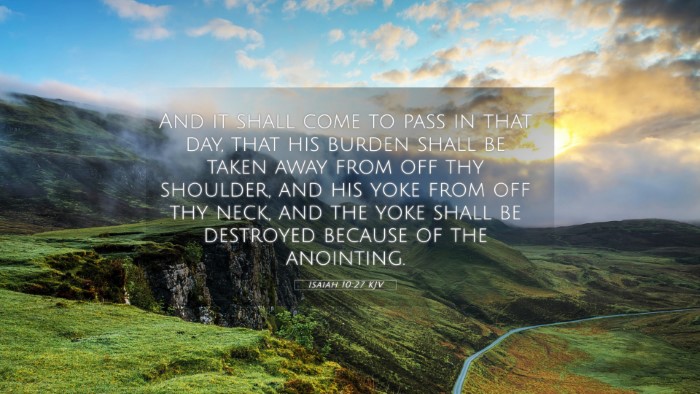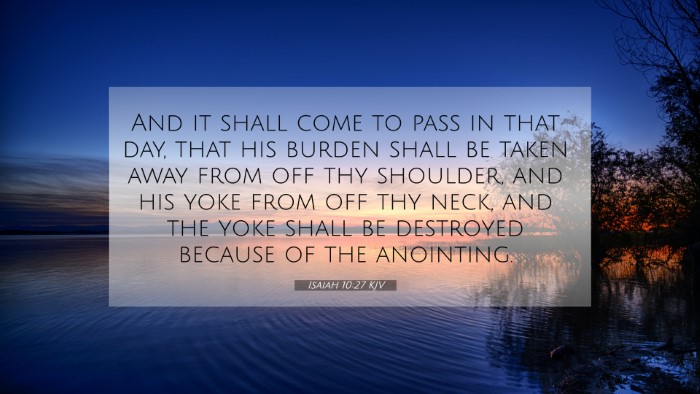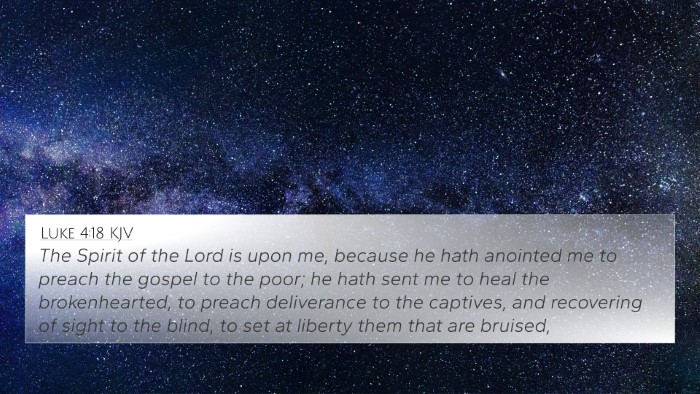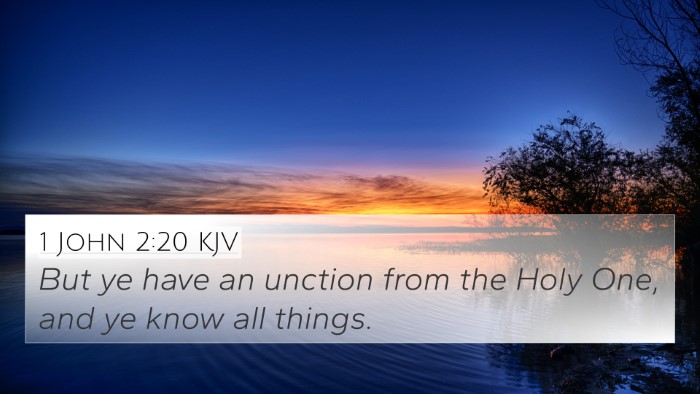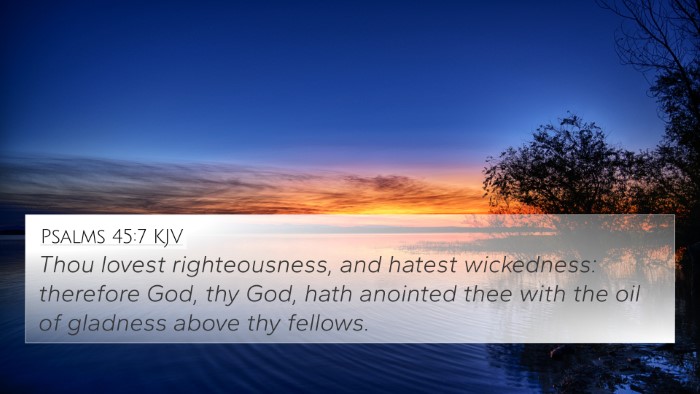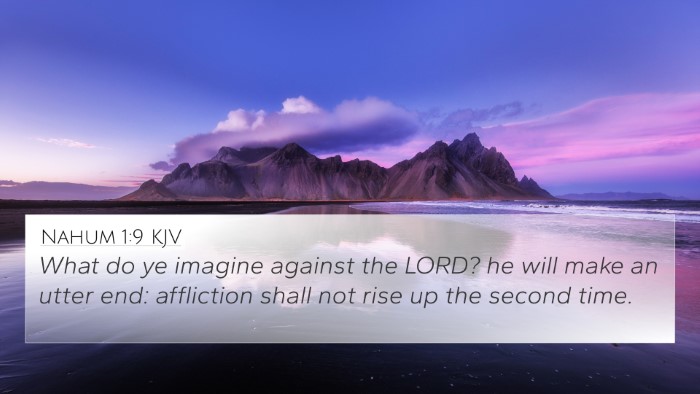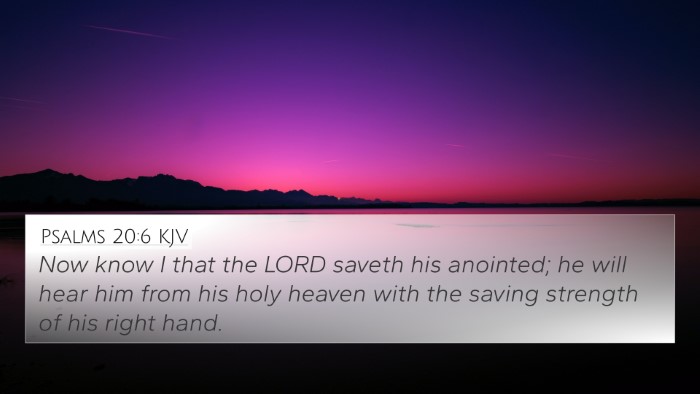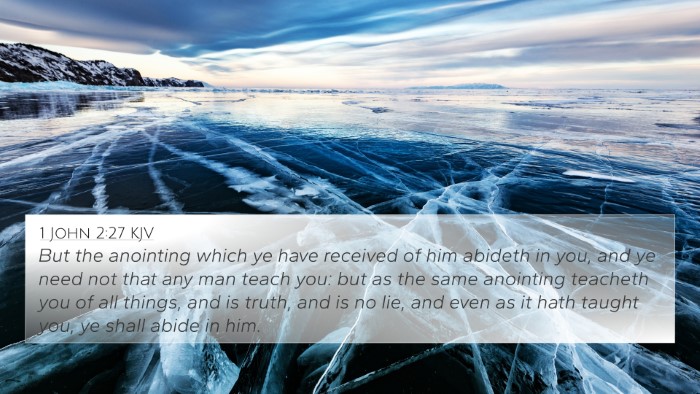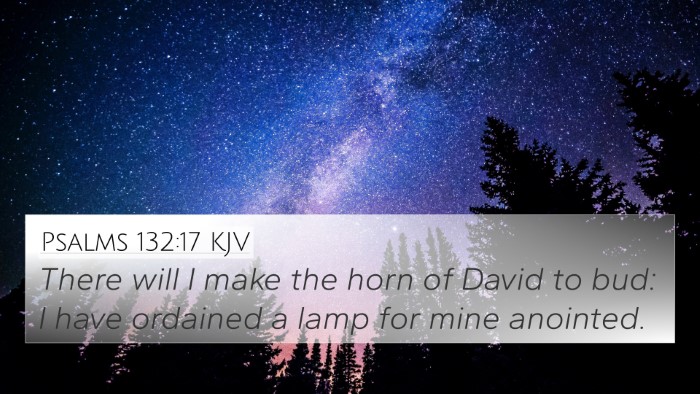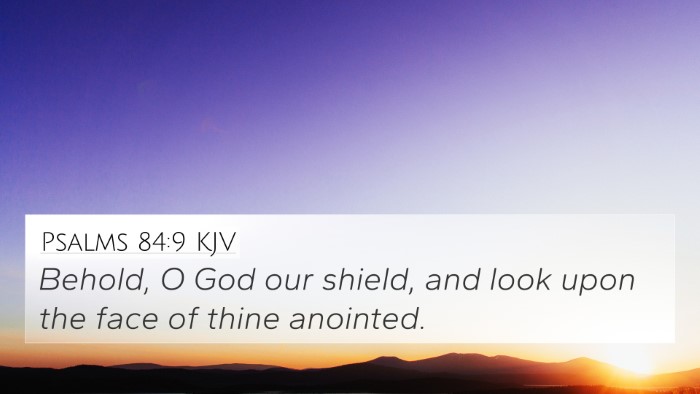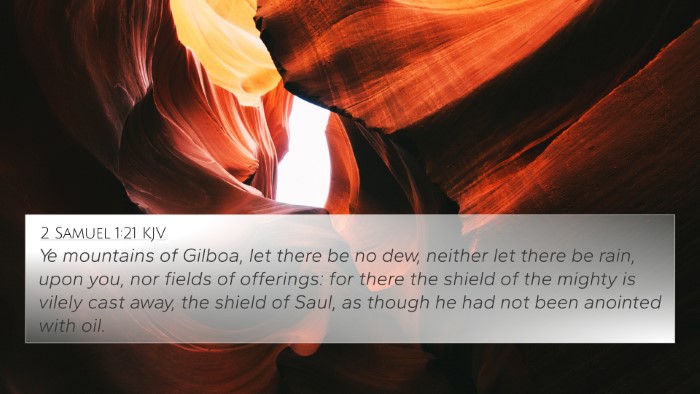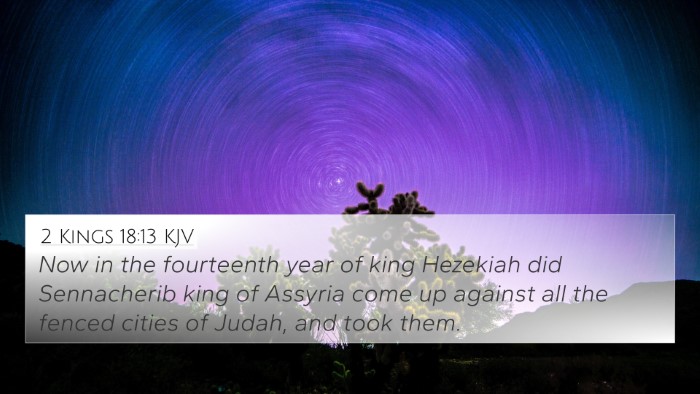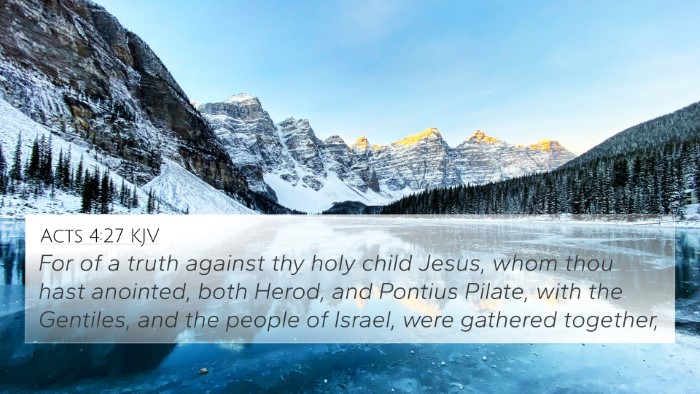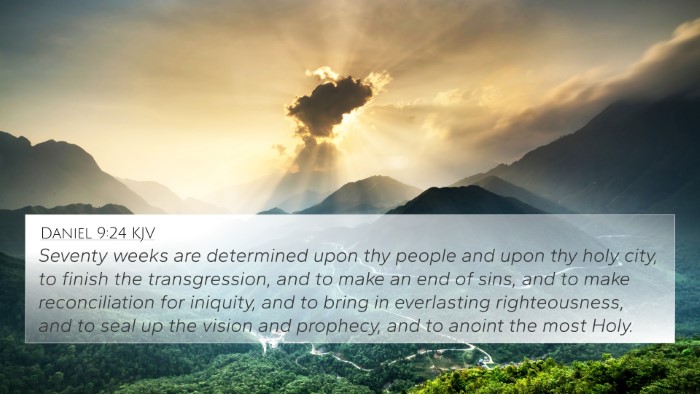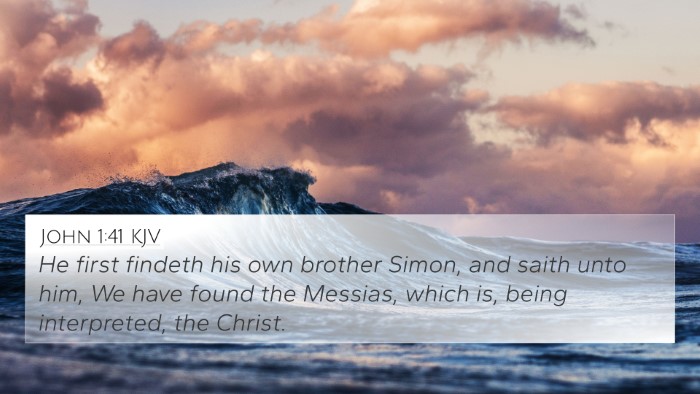Isaiah 10:27 states: "And it shall come to pass in that day, that his burden shall be taken away from off thy shoulder, and his yoke from off thy neck, and the yoke shall be destroyed because of the anointing."
This verse encapsulates a profound promise regarding liberation and deliverance, indicating a transformation brought about by divine intervention. Below, we will explore the meaning and significance of Isaiah 10:27 by drawing insights from esteemed public domain commentaries, including those of Matthew Henry, Albert Barnes, and Adam Clarke.
Overview of the Verse
In this verse, Isaiah prophesies concerning the burdens placed by oppressors, particularly in relation to the Israelites and their future hope. The mention of a burden being removed and a yoke being destroyed reflects God's promise of liberation.
Contextual Background
The context of Isaiah 10 is crucial for understanding the depth of this passage. The chapter discusses God’s judgment against Assyria, which has become an instrument of oppression. The Israelites are assured that their suffering will be alleviated, pointing to a future restoration.
Interpretation from Commentaries
Matthew Henry's Commentary
Matthew Henry emphasizes that the 'yoke' symbolizes oppression and servitude. He explains that the 'anointing' signifies divine empowerment, which is essential for breaking the chains of bondage. Henry suggests that this deliverance is not only physical but also spiritual, as God enables His people to overcome their adversities.
Albert Barnes' Notes on the Bible
Albert Barnes elaborates on the idea that the 'yoke' represents the burdens and pressures placed upon the Israelites by their enemies. He points out that the 'anointing' refers to the Holy Spirit's power, which brings about a significant change. Barnes notes that this verse should inspire hope, for it promises a time when God will intervene on behalf of His people.
Adam Clarke's Commentary
Adam Clarke interprets the 'burden' mentioned in the verse as the weight of affliction that the Israelites carry. He underscores the importance of the anointing, arguing it is through God’s presence and action that they will be set free from their tribulations. Clarke connects this deliverance to the character of Christ, whose ministry is associated with the anointing to preach good news and proclaim liberty.
Thematic Connections and Cross-References
Isaiah 10:27 can be connected to several other significant biblical texts, highlighting themes of deliverance and divine empowerment:
- Galatians 5:1 - "Stand fast therefore in the liberty wherewith Christ hath made us free, and be not entangled again with the yoke of bondage." This New Testament verse parallels the theme of freedom from oppression.
- Luke 4:18 - "The Spirit of the Lord is upon me, because he hath anointed me to preach the gospel to the poor; he hath sent me to heal the brokenhearted…" This verse speaks to the anointing that brings liberation.
- Matthew 11:30 - "For my yoke is easy, and my burden is light." This reflects the contrast between worldly burdens and the lightness found in Christ.
- John 8:36 - "If the Son therefore shall make you free, ye shall be free indeed." This underlines the freedom that comes through divine action.
- Romans 8:2 - "For the law of the Spirit of life in Christ Jesus hath made me free from the law of sin and death." Similar to Isaiah, it emphasizes the transformative power of the Spirit.
- Psalm 68:1 - "Let God arise, let his enemies be scattered: let them also that hate him flee before him." This aligns with the promise of deliverance from adversaries.
- Acts 10:38 - "How God anointed Jesus of Nazareth with the Holy Ghost and with power: who went about doing good, and healing all that were oppressed of the devil; for God was with him." Reflects the empowerment for deliverance, tying back to Isaiah's message.
Significance of the Anointing
The 'anointing' mentioned in Isaiah 10:27 carries critical theological importance. It suggests the manifestation of God’s power that breaks all types of yokes—physical, spiritual, and emotional burdens. This concept of anointing is foundational in understanding how God equips His servants to bring deliverance.
Practical Application
Isaiah 10:27 serves as a reminder for individuals facing insurmountable challenges. The verse encourages believers to seek God’s anointing for strength and freedom. Understanding and applying this promise can provide comfort and assurance of God’s presence in times of need.
Conclusion
In summary, Isaiah 10:27 delivers a powerful message of hope and liberation that is echoed in various parts of Scripture. By cross-referencing it with other biblical texts, one can see its profound implications for both personal faith and communal encouragement. The exploration of this verse through the insights of Matthew Henry, Albert Barnes, and Adam Clarke enhances our comprehension of its significance and invites further reflection on God's promises.
Further Study
For those interested in delving deeper into **Bible verse cross-references** and exploring the **connections between Bible verses**, numerous tools and resources are available, such as Bible concordances and cross-reference guides, to enrich your understanding and study of the Scriptures.
